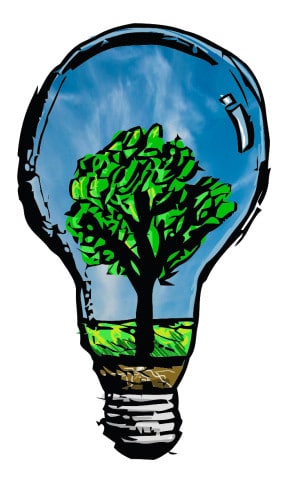During the week of Oct. 13-16, the Office of Sustainability will be hosting Campus Sustainability Week, an event that highlights everything sustainable that the University of Saskatchewan has to offer.
Campus Sustainability Week presents an opportunity for students, staff and faculty to showcase their efforts towards sustainability. According to the Office of Sustainability website, sustainability is defined as “the stewardship of the natural environment in a socially and economically responsible manner that meets the needs of both present and future generations.”
Matt Wolsfeld, the community engagement co-ordinator for the Office of Sustainability, thinks the week is a chance for people to get an inside look at how the U of S practices sustainability.
“It’s an opportunity to look not only at the student groups that are being active in sustainability, [but also] looking at some of the things that happen behind the scenes in terms of facilities management, energy efficiency, finances and things like that,” Wolsfeld said.
A wide range of events will be taking place on campus over the duration of the week including the Sustainability Expo, which will be set up in the north concourse of Place Riel. The expo will feature sustainability related displays set up by a variety of U of S campus groups.
“It’s essentially just going to be an area where they can get to know different campus groups that are interacting with sustainability on a regular basis, and they can learn more about a couple of select topics,” Wolsfeld said.
The Diefenbaker Canada Centre, a museum and interpretative centre located within the U of S, is offering sustainability tours that take participants all around the U of S campus, h ighlighting the various sustainability initiatives that students may not have been aware of already.
ighlighting the various sustainability initiatives that students may not have been aware of already.
Other events include an information session on winter cycling, a clothing swap and documentary screenings at the Broadway Theatre.
Various campus clubs and organizations are involved with Sustainability Week, ranging from the U of S Students’ Union Food Centre, to the Campus Cycling Club, to the School of Environment and Sustainability. Wolsfeld insists that each group contributes something valuable and unique to this celebration of sustainability.
Moreover, Campus Sustainability Week has experienced an increase in the diversity of its contributors this year.
“We’re also getting a lot of new student groups that I wasn’t expecting this year,” Wolsfeld said. “The Physics Students’ Society is putting on a display about how physics and sustainability interact. We have the anatomy and cell biology students who are going to be hosting up in the concourse, and they’re going to be talking about a sort of micro-level of sustainability.”
While most people only think of sustainability in terms of the environment, it plays a role in many different areas. Wolsfeld hopes that students learn more about how sustainability fits into their daily lives.
“I’m hoping that they take away that first and foremost, sustainability probably affects them in one way or another, in some sort of format that they wouldn’t have expected,” he said, adding that social and economic sustainability are also essential parts of creating a viable future for further generations.
When it comes to sustainability, Wolsfeld recognizes that universities serve as a special place to discuss these kinds of issues.
“On university campuses, I feel it’s very important to talk about sustainability because this is a place where open and honest communication is shared,” Wolsfeld said.
Ultimately, Campus Sustainability Week works towards creating awareness. By attending events, asking questions and learning new things, Wolsfeld wants students to discover ways in which they can help make their communities, and the world, a better place.
“It’s really an opportunity to start looking at some of our older, less sustainable behaviors, and we can make them so they’re going to be sustainable into the future, that they’re not going to be running into inefficiencies [and that] we’re not going to be causing problems for further generations.”
Leave a Reply